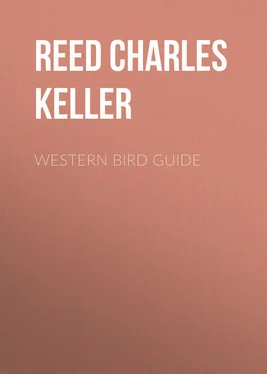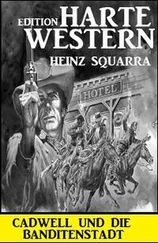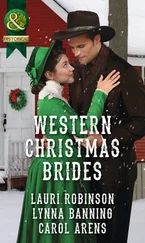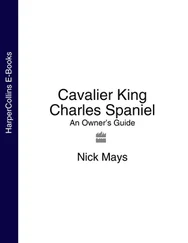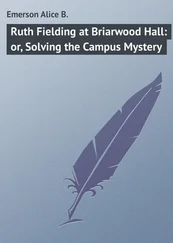Charles Reed - Western Bird Guide
Здесь есть возможность читать онлайн «Charles Reed - Western Bird Guide» — ознакомительный отрывок электронной книги совершенно бесплатно, а после прочтения отрывка купить полную версию. В некоторых случаях можно слушать аудио, скачать через торрент в формате fb2 и присутствует краткое содержание. Жанр: foreign_antique, foreign_prose, на английском языке. Описание произведения, (предисловие) а так же отзывы посетителей доступны на портале библиотеки ЛибКат.
- Название:Western Bird Guide
- Автор:
- Жанр:
- Год:неизвестен
- ISBN:нет данных
- Рейтинг книги:3 / 5. Голосов: 1
-
Избранное:Добавить в избранное
- Отзывы:
-
Ваша оценка:
- 60
- 1
- 2
- 3
- 4
- 5
Western Bird Guide: краткое содержание, описание и аннотация
Предлагаем к чтению аннотацию, описание, краткое содержание или предисловие (зависит от того, что написал сам автор книги «Western Bird Guide»). Если вы не нашли необходимую информацию о книге — напишите в комментариях, мы постараемся отыскать её.
Western Bird Guide — читать онлайн ознакомительный отрывок
Ниже представлен текст книги, разбитый по страницам. Система сохранения места последней прочитанной страницы, позволяет с удобством читать онлайн бесплатно книгу «Western Bird Guide», без необходимости каждый раз заново искать на чём Вы остановились. Поставьте закладку, и сможете в любой момент перейти на страницу, на которой закончили чтение.
Интервал:
Закладка:
Nest.– Similar to the former, the eggs being more of a greenish brown, with the black spots mostly on the larger end (3.10 × 2).
Range.– Western N. A., breeding in Alaska and British Columbia; winters along the Pacific coast to Mexico.
RED-THROATED LOON
The smallest of the Loon family. The back and head are gray, there is a large patch of chestnut on the fore-neck; under parts white. Owing to the straight top to the upper mandible the bill has a slightly up-turned appearance.
Nest.– Similar to the other Loons, placed within a few feet of the water. The eggs are an olive brown with more markings usually than the others, and mostly on the larger end (2.90 × 1.75).
Range.– Along the western coast of North America.
AUKS, MURRES AND PUFFINS – Family Alcidæ
TUFTED PUFFIN; SEA PARROT
This is the largest of the family, they are odd looking birds, with short legs, stout bodies and very large, thin bills, highly colored with red and yellow, the feet are red and the eyes are white. They stand erect upon their feet and walk with ease.
Nest.– They breed commonly on the islands of the Pacific coast, laying their single white egg in burrows or crevices of the rocks. In some sections two or three broods are raised in a season (2.80 × 1.90).
Range.– Pacific coast from southern California to Alaska.
HORNED PUFFIN
This Puffin is similar to the common Puffin of the east, excepting that the blackish band across the throat extends upwards in a point to the bill.
Nest.– The same as the above, the single egg averaging smaller (2.65 × 1.80).
Range.– Islands of the northern Pacific to the Arctic ocean.
RHINOCEROS AUKLET
These birds have a much smaller bill than the Puffins TUFTED PUFFIN; SEA PARROT 12. Lunda cirrhata. 13 inches This is the largest of the family, they are odd looking birds, with short legs, stout bodies and very large, thin bills, highly colored with red and yellow, the feet are red and the eyes are white. They stand erect upon their feet and walk with ease. Nest. – They breed commonly on the islands of the Pacific coast, laying their single white egg in burrows or crevices of the rocks. In some sections two or three broods are raised in a season (2.80 × 1.90). Range. – Pacific coast from southern California to Alaska.
; in the summer plumage there is a small horn at the base of the bill from which it is given its name. These birds do not stand upright as do the Puffins; but sit upon their tarsus.
Nest.– A single egg is laid in either burrows or in crevices of the rocks, usually without any attempt at nest making (2.70 × 1.80).
Range.– Coast and islands of the northern Pacific. Breeds from Oregon to northern Alaska.
CASSIN AUKLET
A plain appearing bird, breast and throat grayish and belly white with blackish upper-parts relieved only by a small white spot over the eye. This Auklet is fairly abundant on the Farallones and islands off the Lower California coast.
Nest.– A single egg, dull white, the inside of the shell being a pale green when held to the light. These are laid in burrows or tunnels under the rocks, at times three or four feet long (1.80 × 1.30).
Range.– Pacific coast of N. A., Alaska to Lower California.
PAROQUET AUKLET
This bird is much like Cassin Auklet CASSIN AUKLET 16. Ptychoramphus aleuticus. 9 inches A plain appearing bird, breast and throat grayish and belly white with blackish upper-parts relieved only by a small white spot over the eye. This Auklet is fairly abundant on the Farallones and islands off the Lower California coast. Nest. – A single egg, dull white, the inside of the shell being a pale green when held to the light. These are laid in burrows or tunnels under the rocks, at times three or four feet long (1.80 × 1.30). Range. – Pacific coast of N. A., Alaska to Lower California.
, but lacking the white spot over the eye and having a white breast. The bill is very peculiar, being quite deep and rounded and having an upward tendency. It is orange red in color.
Range.– The Alaskan coast, usually farther south in winter. Nesting in the Aleutian Islands, a single white egg is laid (2.25 × 1.40).
WHISKERED AUKLET
Breeds quite abundantly on some of the Aleutian Islands. The single white egg is laid in burrows or crevices of the rocks (2.00 × 1.25).
CRESTED AUKLET
Similar in form and plumage to the Paroquet Auklet PAROQUET AUKLET 17. Phaleris psittacula. 10 inches This bird is much like Cassin Auklet CASSIN AUKLET 16. Ptychoramphus aleuticus. 9 inches A plain appearing bird, breast and throat grayish and belly white with blackish upper-parts relieved only by a small white spot over the eye. This Auklet is fairly abundant on the Farallones and islands off the Lower California coast. Nest. – A single egg, dull white, the inside of the shell being a pale green when held to the light. These are laid in burrows or tunnels under the rocks, at times three or four feet long (1.80 × 1.30). Range. – Pacific coast of N. A., Alaska to Lower California. , but lacking the white spot over the eye and having a white breast. The bill is very peculiar, being quite deep and rounded and having an upward tendency. It is orange red in color. Range. – The Alaskan coast, usually farther south in winter. Nesting in the Aleutian Islands, a single white egg is laid (2.25 × 1.40).
, except the whole under parts are gray.
Nest and Range.– On the islands and main land of the Alaskan coast, laying only one chalky white egg in crevices or burrows under the rocks.
LEAST AUKLET
This is the smallest of the Auklets, and in habits are the same as others of the same family. They are one of the most abundant of the water birds of the extreme Northwest.
Nest.– Only one single white egg is laid upon the bare rocks or in crevices, on the islands of the Alaskan coast (1.50 × 1.10).
ANCIENT MURRELET
The Murrelets have no crests or plumes and the bills are more slender than the Auklets RHINOCEROS AUKLET 15. Cerorhinca monocerata. 11 inches These birds have a much smaller bill than the Puffins TUFTED PUFFIN; SEA PARROT 12. Lunda cirrhata. 13 inches This is the largest of the family, they are odd looking birds, with short legs, stout bodies and very large, thin bills, highly colored with red and yellow, the feet are red and the eyes are white. They stand erect upon their feet and walk with ease. Nest. – They breed commonly on the islands of the Pacific coast, laying their single white egg in burrows or crevices of the rocks. In some sections two or three broods are raised in a season (2.80 × 1.90). Range. – Pacific coast from southern California to Alaska. ; in the summer plumage there is a small horn at the base of the bill from which it is given its name. These birds do not stand upright as do the Puffins; but sit upon their tarsus. Nest. – A single egg is laid in either burrows or in crevices of the rocks, usually without any attempt at nest making (2.70 × 1.80). Range. – Coast and islands of the northern Pacific. Breeds from Oregon to northern Alaska.
and are not highly colored.
Интервал:
Закладка:
Похожие книги на «Western Bird Guide»
Представляем Вашему вниманию похожие книги на «Western Bird Guide» списком для выбора. Мы отобрали схожую по названию и смыслу литературу в надежде предоставить читателям больше вариантов отыскать новые, интересные, ещё непрочитанные произведения.
Обсуждение, отзывы о книге «Western Bird Guide» и просто собственные мнения читателей. Оставьте ваши комментарии, напишите, что Вы думаете о произведении, его смысле или главных героях. Укажите что конкретно понравилось, а что нет, и почему Вы так считаете.
